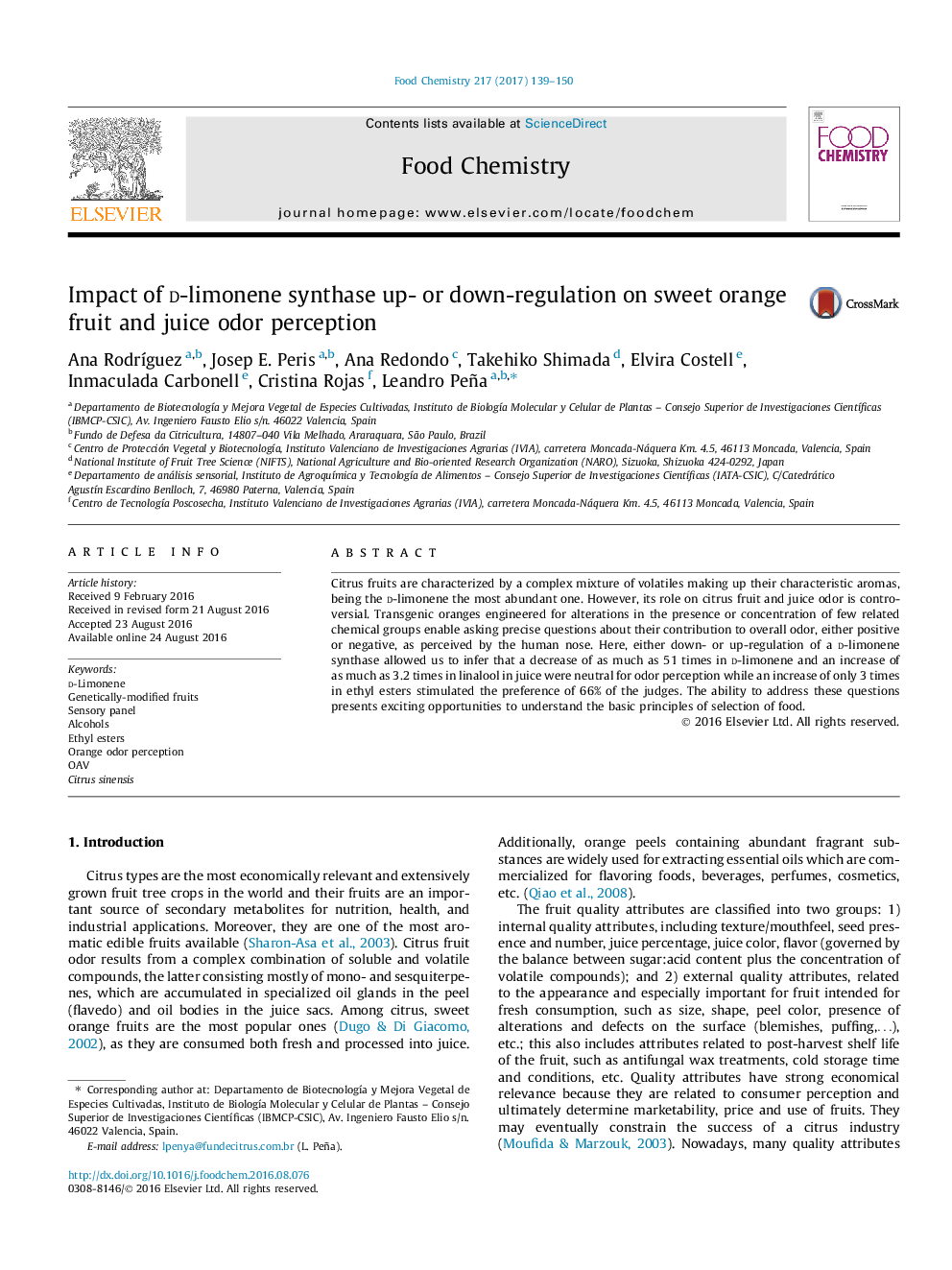| Article ID | Journal | Published Year | Pages | File Type |
|---|---|---|---|---|
| 1184742 | Food Chemistry | 2017 | 12 Pages |
•d-Limonene synthase down- or up-regulation allowed studying the role of volatiles in orange smell.•d-Limonene did not have a major influence in orange fruit and juice odor.•Linalool (in absence of d-limonene) was neutral for human perception of fruit and juice odor quality.•Ethyl esters enhanced juice odor preference.
Citrus fruits are characterized by a complex mixture of volatiles making up their characteristic aromas, being the d-limonene the most abundant one. However, its role on citrus fruit and juice odor is controversial. Transgenic oranges engineered for alterations in the presence or concentration of few related chemical groups enable asking precise questions about their contribution to overall odor, either positive or negative, as perceived by the human nose. Here, either down- or up-regulation of a d-limonene synthase allowed us to infer that a decrease of as much as 51 times in d-limonene and an increase of as much as 3.2 times in linalool in juice were neutral for odor perception while an increase of only 3 times in ethyl esters stimulated the preference of 66% of the judges. The ability to address these questions presents exciting opportunities to understand the basic principles of selection of food.
